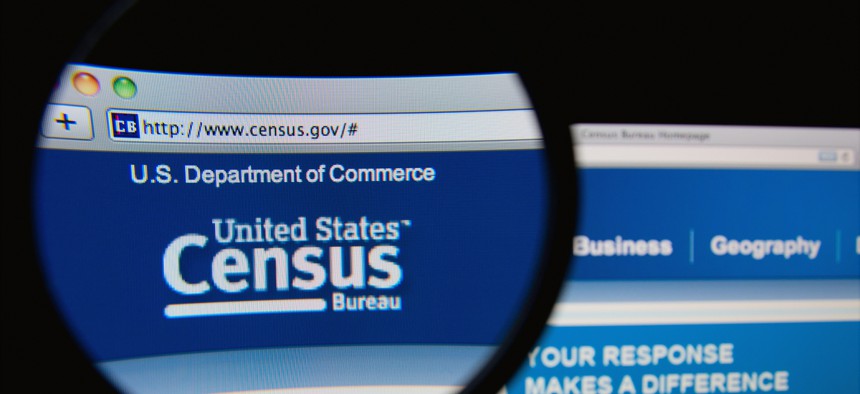States Ready to Sue as Commerce Department Moves to Add Citizenship Question to Census

Shutterstock

Connecting state and local government leaders
Civil rights groups, immigration advocates and state AGs prepare for what could “potentially be a long-haul flight.”
States responded swiftly to Commerce Secretary Wilbur Ross’ decision on Monday night to include a citizenship-related question on the 2020 census, despite concerns it will depress response rates, especially among immigrant communities.
Within hours, California Attorney General Xavier Becerra filed a lawsuit in U.S. District Court challenging the change’s legality. The U.S. Constitution’s enumeration clause requires the census count “the whole number of free persons,” not just citizens, an interpretation unanimously upheld by the U.S. Supreme Court in its 2016 Evenwel v. Abbott decision.
New York state’s attorney general, Eric Schneiderman, similarly announced a multi-state lawsuit to “preserve a fair and accurate census,” already joined by Connecticut and New Jersey, against the Trump administration.
“In the minds of many, they’re intentionally placing themselves in the position where they cannot do the job well,” Becerra said during a press conference on Tuesday with California Secretary of State Alex Padilla.
The Golden State has the most to lose if several million people go uncounted during the census, he said, which is why California filed independently.
Padilla argued that purposeful undercounting of those too afraid to respond to the census for fear of deportation of themselves, family or friends would limit his state’s share of congressional representation and federal funding.
“If we’re forced to redistrict with incomplete census data, now we’re compromising voter rights,” Padilla said. “When we lose funding, when we lose congressional representation, we lose big if Trump is successful in getting this question on the census.”
Ross made the case in an eight-page memo that the need for census block-level citizenship data outweighed the potential for a lower response rate.
The Commerce Department further found “limited empirical evidence exists” proving a citizenship question would decrease response.
“While it is possible this belief is true, there is no information available to determine the number of people who would in fact not respond due to a citizenship question being added, and no one has identified any mechanism for making such a determination,” Ross’ memo reads.
But John Yang, president and executive director of Asian American Advancing Justice, said during a Tuesday conference call that it’s the Commerce Department’s responsibility to ensure all questions are adequately tested.
The Census Bureau is budgeted for one final test in Providence County, Rhode Island using a questionnaire without the citizenship question. That means the question will be implemented “blindly” in 2020 on a census counting the largest population in U.S. history, said Arturo Vargas, National Association of Latino Elected and Appointed Officials Educational Fund executive director.
Opponents of the addition were also troubled by a President Trump fundraising email sent out to potential donors on March 19 floating the question, hinting a decision had already been made on the issue.

That Attorney General Jeff Sessions requested the question be reinstated to protect against racial discrimination, according to the Voting Rights Act, was “unprecedented,” said Vanita Gupta, president and CEO of The Leadership Conference on Civil and Human Rights, a Washington, D.C.-based coalition of civil rights organizations. The American Community Survey, which is an extension of the census, already includes the question for that reason.
And Padilla criticized the Trump administration’s track record on voting rights: the Justice Department reversing positions on numerous cases, the president launching and then disbanding a commission on election fraud “premised on baseless accusations,” and his failure to “acknowledge Russian interference in the 2016 elections.”
The Commerce Department will next present its report to Congress, which can pass legislation to alter the content of the census. Numerous potential legislative vehicles exist, Yang said.
Enough votes to override a likely presidential veto would be hard to come by however, in which case AAAJ and the other members of The Leadership Conference would look to litigate as well.
“This fight can potentially be a long-haul fight,” Gupta said.
The Census Bureau doesn’t plan to send materials for printing until May 2019, but damage has already been done in terms of encouraging participation and despite census data being unshareable for 72 years legally.
Becerra pointed out the U.S. used census data to identify Japanese Americans for internment during World War II, a low point in the nation’s history.
“What we want to do is inspire confidence in people completing the questionnaire,” Becerra said. “Not have them fear completing it.”
For every percentage point that households fall below the 55 percent response rate sought, $55 million must be added to the budget in non-response follow-up costs, Vargas said.
Accurate census data informs everything from student class sizes at public schools to local funding for emergency response. More than 160 mayors, Democrats and Republicans, opposed the citizenship question in a letter to Ross.
“They are responsible for ensuring municipal services … are available to everyone in their jurisdictions,” Gupta said. “Not just citizens.”
Dave Nyczepir is a News Editor at Government Executive’s Route Fifty and is based in Washington, D.C.

NEXT STORY: Dozens of State DOTs Are Now Using or Testing Aerial Drones





